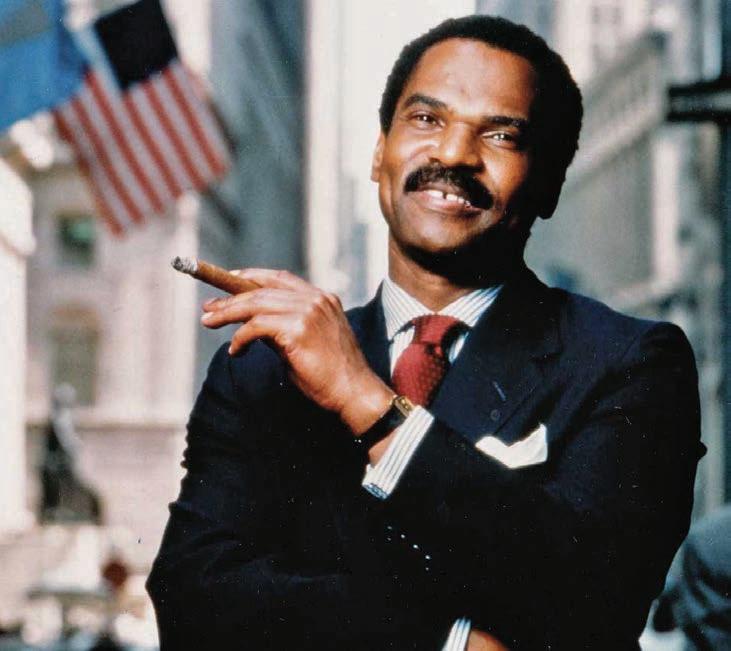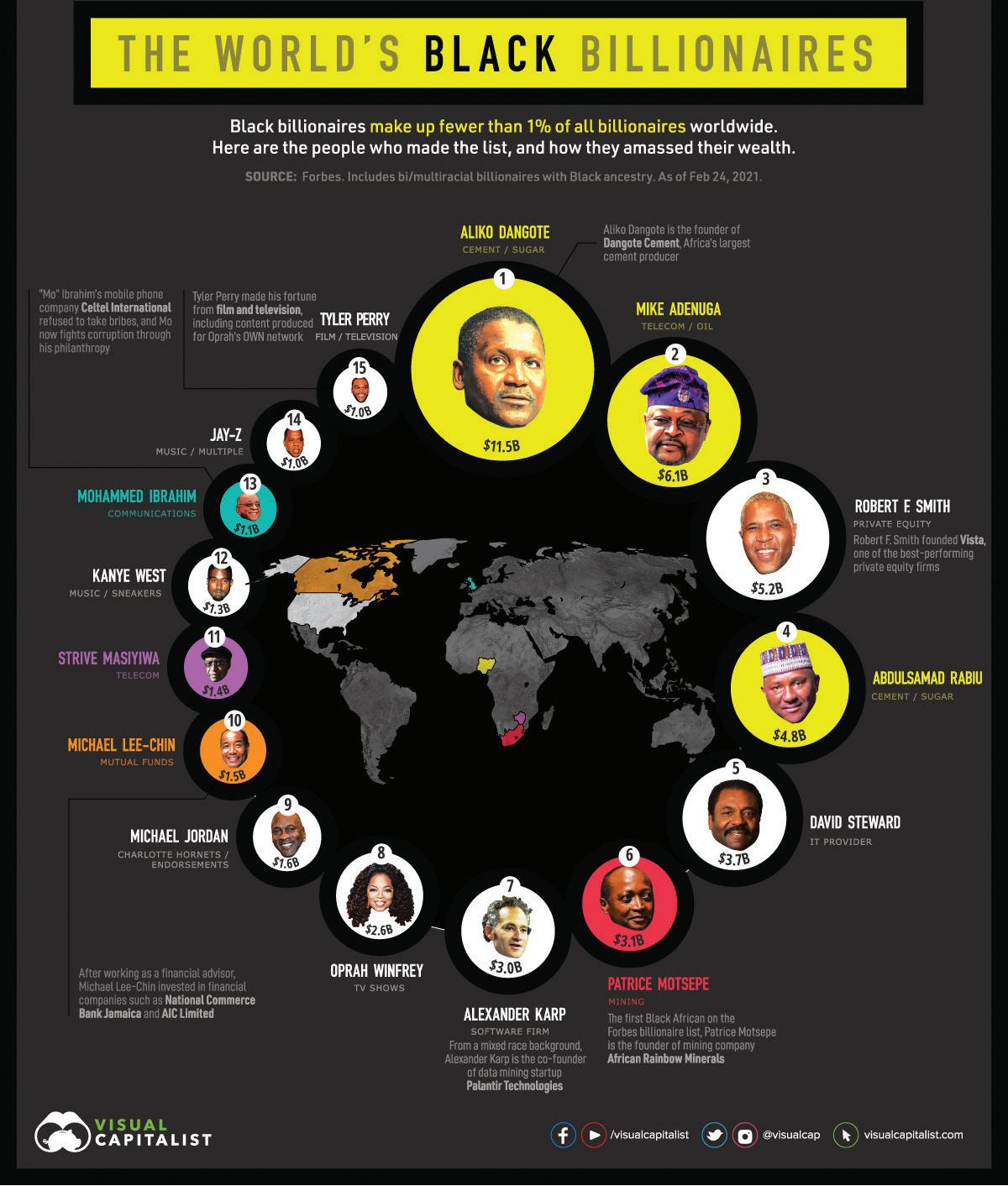
2 minute read
THE HUSTLE
How to Succeed in Business by Really Trying
Reginald Lewis, 1942-1993: The First Black Billionaire
Advertisement
By Earl A. Birkett
The Roaring Eighties. Dallas and Dynasty ruled the TV ratings, TV viewers swooned over Lifestyles of the Rich and Famous, the MBA was the degree of choice, and everywhere one looked, the future was so bright you had to wear shades. The risk arbitrageur was the glamour job. In short, he was a pirate who bought huge stakes in big corporations, threatening to buy them outright and throw out management in exchange for “greenmail,” a ransom to buy him off. The more scrupulous ones actually did buy the company, looking to save it or expand it into an empire.
One such person was Reginald F. Lewis (19421993). Wall Street was considered a rich white man’s game when the Baltimore native, Harvard Law grad and corporate dealmaker penetrated the elite club by forming his own private equity firm, TLC Group L.P., in 1983. Within a decade, before his death from brain cancer, Lewis had reshuffled the game for black entrepreneurs, buying up two legacy companies: McCall Pattern Company, known for its sewing patterns, for $22.5 million, and, in 1987,

THEY FOLLOWED IN HIS FOOTSTEPS
TECH/MEDIA

COMMODITIES
HIGH FINANCE

Beatrice International Foods, the food and beverage conglomerate, for $985 million. These purchases were financed in part with junk bonds, a popular source of capital in that decade. Lewis turned both companies around and made his firm, TLC Beatrice International Holdings Inc., the largest black-owned business, with annual revenue of $1.4 billion. Lewis’ ownership of the company made him the first black person to achieve billionaire status. He used his enormous fortune to fund philanthropic causes, from HBCUs (he was a Virginia State University graduate) to what became the Reginald F. Lewis Museum of Maryland African American History & Culture, a pet project.
Since Lewis, many other self-made black moguls have followed in his wake, all benefiting from the explosion in wealth generated from the tech/media boom (cable TV, the Internet), rising commodities prices (oil, gold, crops, building materials) and the bull market in stocks. Unfamiliar names like the leader, Aliko Dangote (net worth $11.5 billion from cement/ sugar), and fellow African Mike Adenuga ($6.1 billion,

telecom/oil) join more familiar American names, such as Robert F. Smith ($5.2 billion, private equity), Oprah Winfrey ($2.6 billion, TV), Michael Jordan ($1.6 billion, sports), Kanye West ($1.3 billion, music/ sneakers), JAY-Z ($1 billion, music+) and Tyler Perry ($1 billion, film/TV). Many others are sure to follow as the Dow continues its rise and new ideas flourish. Blacks of African descent have come a long way in business since the days of Madam C.J. Walker’s hair care products more than a century ago. Lewis himself put it best in the title of his unfinished autobiography: Why Should White Guys Have All the Fun?






